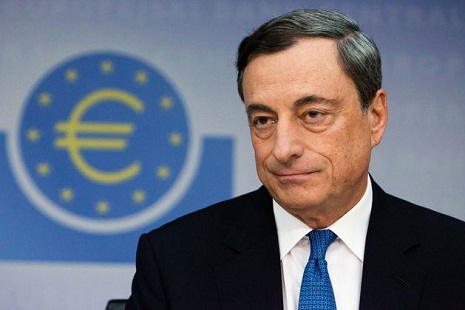What is this and what would it accomplish?
The first thing you need to know is that the euro zone economy is very, very weak. According to the statistics agency Eurostat, the unemployment rate is 11.5%. Growth in the euro zone is less than 1%. And recently the area has been experiencing deflation, a dangerous decline in prices that prompts people delay making purchases and investments and drives down economic activity.
Why is the euro zone economy so bad?
Lots of reasons. The euro zone is a badly constructed amalgamation of countries with disparate economies that probably shouldn`t have the same currency in the first place. Does it make sense for Germany to be using the same currency as Cyprus, and to have the same central bank? Not really. (Of course, there are many disparate state economies in the US; the differences is that the US also has fiscal unification that enables transfers from rich states to poor states.) Furthermore, policy hasn`t been conducive to growth since the global economic crisis of 2008-2009. Governments have been told to cut their debts, preventing them from boosting their economies with higher spending.
What can Draghi do about it?
Well, one of the tools that the United States used to get out of its own slump in 2009 was this quantitative easing: The Federal Reserve bought hundreds of billions of dollars of U.S. government bonds. The Fed could do this because it essentially controls the printing press and can create money at will. The idea behind the plan is that when the Fed goes out into the market and buys debt, it`s pumping money into the system, which then might get used to buy loans, fund businesses, and boost asset prices. In the U.S., QE has worked OK. The recovery has been better than most, though still disappointingly slow by most people`s standards.
The ECB is looking to do the same thing. The hope is that if it buys government bonds from the private sector, then the private sector will use that money to take risks (buy assets, make loans, etc.) and that that will boost the economy.
So it`s that simple?
Well, no, nothing is that simple. There are all kinds of potential problems and complications. For one thing, the Germans -- who have lots of influence at the ECB and who have the strongest economy in the euro zone -- hate the idea. German policymakers despise the notion of central banks printing money, and they think governments should stay focused on debt reduction, and not have a central bank to slurp up their debt.
It`s also tricky that in the euro zone, unlike in the U.S., you have many different governments issuing debt. The ultimate plan may not involve the ECB directly buying government bonds, but in having the national central bank of each country buy up the debt -- each country in the euro zone still has its own central bank.
And it`s possible that the plan just doesn`t work as planned. In theory, the money that the ECB pumps into the system will work its way into the real economy. In practice, it might not. Maybe people will just sit on their cash. Or maybe they`ll use their cash to invest in Germany. Or they`ll use it to buy U.S. government debt, which currently pays a greater yield than euro zone debt. Nobody seems all that optimistic that the plan will give the economy a huge boost.
Bottom line:
The euro zone has all kinds of structural flaws that are preventing robust growth -- the shared currency is one, as is the ongoing drive to reduce spending. With any luck, though, a more aggressive and expansive ECB can pump money into the system and help turn the ship around.
More about:














-1741856732.jpg&h=190&w=280&zc=1&q=100)












-1741856732.jpg&h=120&w=187&zc=1&q=70')




















